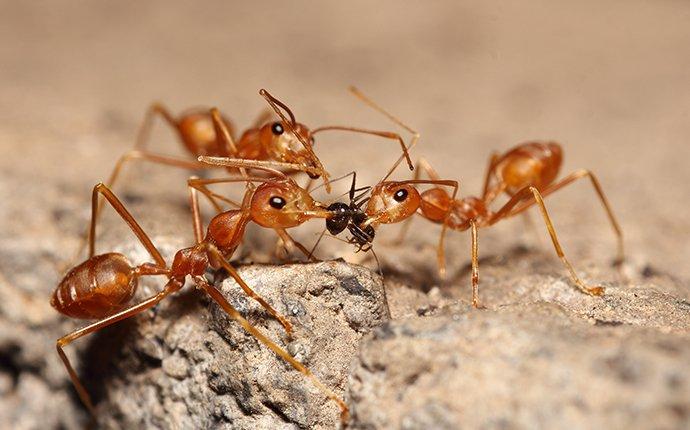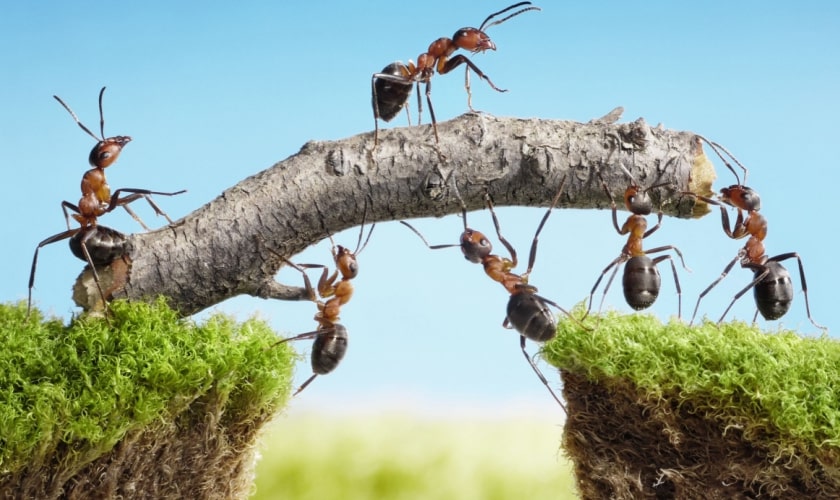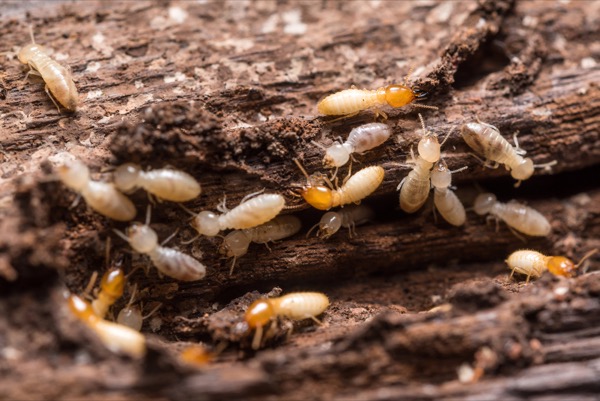Reliable Ant Control: Specialist Services to Eliminate Ant Infestations
Ecological Effect of Bug Control: Harmonizing Effectiveness With Sustainability
The environmental impact of insect control is an essential concern that calls for a fragile balance between achieving performance in ensuring and taking care of pests sustainability of our environments. From the usage of harmful chemicals that permeate into our soil and water to the unintentional effects on non-target varieties, the consequences of traditional insect control techniques are far-ranging.
Dangerous Chemicals in Pest Control
The use of damaging chemicals in parasite control postures substantial ecological and health and wellness threats that necessitate careful factor to consider and reduction methods. Pesticides, herbicides, and pesticides are frequently utilized to get rid of pests, yet their prevalent application can result in unintentional repercussions. These chemicals can pollute dirt, water resources, and the air, impacting not only the targeted pests but likewise advantageous insects, wild animals, and humans.

To address these threats, integrated parasite management (IPM) techniques are being promoted as a more sustainable alternative. IPM involves a combination of techniques such as biological control, environment control, and the targeted use of pesticides as a last hotel (ant control newtonnc). By embracing an alternative approach to pest control, we can lessen the environmental and wellness influences related to dangerous chemicals while effectively handling pest populaces
Effect On Non-Target Species
Taking into consideration the unplanned consequences of insect control methods, the influence on non-target species is a vital aspect that calls for complete evaluation. While parasite control actions aim to target details pests, various other organisms in the environment may be inadvertently influenced. Non-target types, consisting of helpful pests, birds, animals, and even plants, can experience indirect or direct injury from pesticide applications or organic control approaches.
Pesticides designed to battle a specific insect bug may harm pollinators like or natural predators such as ladybugs. Biological control representatives, if not species-specific, can position risks to unexpected targets, disrupting the environmental equilibrium.
To alleviate the effect on non-target varieties, incorporated parasite administration (IPM) strategies that emphasize an alternative technique to pest control are suggested. These methods focus on using eco-friendly techniques, minimizing damage to valuable microorganisms while efficiently handling pest populations. Carrying out comprehensive danger assessments and monitoring the end results of insect control initiatives are crucial action in securing non-target types and advertising general environment health and wellness.
Soil and Water Contamination
Unexpected ecological effects of pest control methods expand beyond influencing non-target species, with substantial effects for dirt and water contamination. Chemicals, herbicides, and chemical plant foods used in parasite control can seep right into the dirt and pollute view it now groundwater, posturing a threat to both earthbound and marine environments. Dirt contamination can interfere with the equilibrium of microorganisms necessary for nutrient biking and plant growth, leading to lowered soil fertility and productivity. Furthermore, these chemicals can continue in the setting for prolonged periods, collecting in the dirt and possibly entering the food chain.
Water contamination is an additional crucial issue connected with insect control techniques. Overflow from agricultural areas treated with pesticides can carry these chemicals into neighboring water bodies, impacting marine organisms and water high quality. Pollutants in water sources can have far-ranging repercussions, impacting not just aquatic life but likewise human health with the consumption of contaminated water or water organisms. To minimize soil and water contamination from bug control activities, incorporated bug monitoring techniques that focus on sustainability and reduce chemical inputs are essential.
Air Pollution From Chemical Usage
Direct exposure to airborne pesticides during farming applications positions a substantial concern for air pollution control measures. Furthermore, pesticide drift, where chemicals are brought by the wind to unintended locations, can lead to the contamination of neighboring ecosystems and water bodies.

Approaches for Lasting Pest Control
In the world of farming methods, carrying out sustainable bug control approaches is vital for preserving environmental balance and protecting crop returns. Lasting bug control emphasizes the use of eco friendly methods to manage bug populations properly while minimizing damage to non-target microorganisms and communities. Integrated Parasite Monitoring (IPM) is a commonly adopted method that integrates biological, social, physical, and chemical control methods to achieve long-term pest management remedies.
Crop rotation and diversification are additionally reliable methods to interrupt pest life cycles and create much less desirable conditions for parasites to flourish. Ultimately, by integrating these lasting insect control techniques, farmers can attain an equilibrium between pest management efficiency and ecological stewardship.
Conclusion
To conclude, the environmental effect of insect control approaches must be very carefully considered to balance effectiveness with sustainability. Damaging chemicals used in pest control can bring about soil and water contamination, air contamination, and harm non-target types - ant control. It is vital to carry out sustainable bug control techniques to reduce these unfavorable results on the environment and promote a much healthier community for future generations
By embracing a holistic technique to pest control, we can lessen the ecological and health effects connected with dangerous chemicals while successfully handling pest populaces.

To mitigate the air pollution triggered by pesticide usage, it is crucial to embrace incorporated pest management strategies that prioritize the use of non-chemical insect control approaches, such as plant rotation, all-natural killers, and resistant plant varieties. Lasting bug control highlights the usage of eco pleasant approaches to take care of parasite populations effectively while minimizing damage to non-target microorganisms and ecosystems. Integrated Bug Management (IPM) is an extensively embraced approach that incorporates biological, cultural, physical, and chemical control techniques to attain long-lasting bug administration solutions.